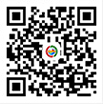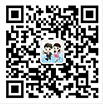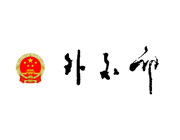


African Members of FOCAC
- Algeria
- Angola
- Benin
- Botswana
- Burkina Faso
- Burundi
- Cabo Verde
- Cameroon
- Central Africa
- Chad
- Comoros
- Congo
- Cote d'Ivoire
- Congo(Kinshasa)
- Djibouti
- Egypt
- Equatorial Guinea
- Eritrea
- Ethiopia
- Gabon
- Gambia
- Ghana
- Guinea
- Guinea-Bissau
- Kenya
- Lesotho
- Liberia
- Libya
- Madagascar
- Malawi
- Mali
- Mauritania
- Mauritius
- Morocco
- Mozambique
- Namibia
- Niger
- Nigeria
- Rwanda
- Sao Tome and Principe
- Senegal
- Seychelles
- Sierra Leone
- Somalia
- South Africa
- South Sudan
- Sudan
- Tanzania
- Togo
- Tunisia
- Uganda
- Zambia
- Zimbabwe
- The Commission of the African Union
Côte d'Ivoire
(Updated May 2018)
【Official Name】Republic of Côte d'Ivoire
【Area】322,463 km2
【Population】23.2 million (2016). There are 69 ethnic groups in the country, divided into 4 major groups: the Akan (42%), the Mande (27%), the Voltaique (16%), and the Kru(15%). In recent years, the number of foreign immigrants from Burkina Faso, Ghana, Guinea, Mali, and Liberia has increased rapidly, currently accounting for about 26% of the total population. All ethnic groups have their own language, and in most parts of the country, Dyula language is commonly used. The official language is French. 42% of residents believe in Islam, 34% believe in Christianity, 16.7% do not have religious beliefs, and others believe in indigenous religions.
【Capital】The political capital Yamoussoukro has a population of about 970,000. The economic capital Abidjan has a population of about 4.29 million. The highest temperature appears from February to April, with an average of 24 to 32℃; while the lowest temperature appears in August from 22 to 28℃. On March 12 1983, Côte d'Ivoire decided to move the capital to Yamoussoukro, but so far the government agencies and diplomatic missions still stay in Abidjan.
【Head of State】President Alassane Dramane Ouattara
【Holiday】Independence Day (August 7)




